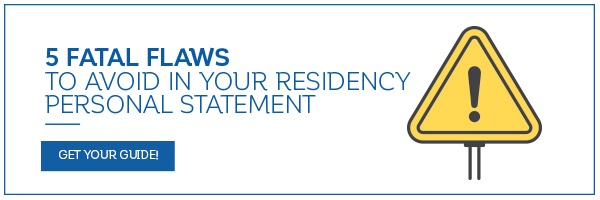Have you started collecting recommendation letters yet? The LoR Portal explains the process of submitting your letters to ERAS, but how can you ensure that you receive the strongest possible recommendation letter?
1. Ask as early as possible. Your recommenders are busy people, and you don’t want to wait until the last minute to add your request to their to-do list. On the other hand, you can’t ask too early, before your recommender gets to know you. Your best time to request a recommendation letter is in the last few days of your rotation. Not only is this more convenient for you (and a weight off your shoulders), but your work will also be fresh in the recommender’s mind.
2. Request letters even if you are not yet sure of your specialty. Attendings know that interests may change during medical school. If you performed well in a rotation, but aren’t sure you want to pursue that specialty, you can still approach the recommender for a future letter. Tell him or her that you are considering a certain specialty and ask if they would recommend you in the future. Although this means you have to track the recommender down later, it can be a valuable safety net for you if you come up short when it’s time to apply.
3. Provide your recommender with support materials. Hopefully you’ve selected people who can write strong recommendations for you. But even the people who know you best need help now and again. Providing them with your CV (and personal statement, if available) is a courtesy. But even more useful can be a cover letter (in addition to the required LoR Request Form) that thanks the recommender for their support, includes the dates that you had contact with them, and tactfully reminds them of anecdotes or shared experiences (leaving it up to them what they might want to include). An additional reminder of your deadlines is also very helpful.
2. Request letters even if you are not yet sure of your specialty. Attendings know that interests may change during medical school. If you performed well in a rotation, but aren’t sure you want to pursue that specialty, you can still approach the recommender for a future letter. Tell him or her that you are considering a certain specialty and ask if they would recommend you in the future. Although this means you have to track the recommender down later, it can be a valuable safety net for you if you come up short when it’s time to apply.
3. Provide your recommender with support materials. Hopefully you’ve selected people who can write strong recommendations for you. But even the people who know you best need help now and again. Providing them with your CV (and personal statement, if available) is a courtesy. But even more useful can be a cover letter (in addition to the required LoR Request Form) that thanks the recommender for their support, includes the dates that you had contact with them, and tactfully reminds them of anecdotes or shared experiences (leaving it up to them what they might want to include). An additional reminder of your deadlines is also very helpful.
One last point: Don’t forget to follow up. After your letters are submitted, send a short thank you note to your recommenders. And don’t forget to let them know where you matched when it’s all over. They are interested.
Every relationship with an attending or mentor is unique, but these general guidelines can help ensure that you and your recommender get through the process with the least stress.
To ensure a stellar LOR, suggest that your recommenders check out our Letter of Recommendation Services. They’ll be matched with an advisor who will coach them through the LOR writing process or help them edit and polish their letters.
By Cydney Foote, former administrator at the University of Washington School of Medicine and author of three ebooks about medical education. Cyd has successfully advised medical school and residency applicants since 2001. Want Cyd to help you get accepted? Click here to get in touch!
Related Resources:
• The Leonardo of Langone: Dr. Michael Natter, a podcast episode
• 5 Personal Statement Tips for Residency Applicants, a free guide• 7 Tips for Matching at an OB-GYN Residency
------------------
This article was originally posted on blog.accepted.com.
Applying to medical school? The talented folks at Accepted have helped hundreds of applicants like you get accepted to their dream programs. Whether you are figuring out where apply, working on your AMCAS application, working on secondary essays, or prepping for your interviews, we are just a call (or click) away. Contact us, and get matched up with the consultant who will help you get accepted!

